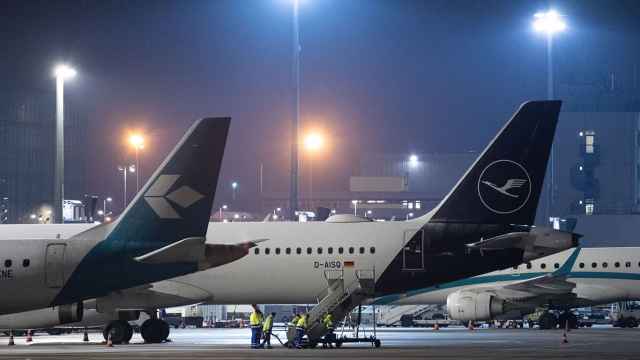Russia plans to at least double its oil and gas flows to Asia over the next 20 years, a draft of its energy strategy showed on Friday, part of a pivot away from export routes to Europe.
Russia's energy sector is undergoing a dramatic transformation, with oil flows being redirected to Asia via the East Siberia-Pacific Ocean pipeline and the gas sector boosted by a partial end of Gazprom's export monopoly.
In a document published on its website, the Energy Ministry said one of the country's goals was to diversify its exports, with the share of oil and oil products sent to Asia doubling to 23 percent by 2035.
By then, Russia aims to ship a total 32 percent of its oil to Asia, the Energy Ministry said, with gas rising to 31 percent from 6 percent. Europe is now Russia's main gas export market.
Russia sent about 16 percent of its total oil exports to Asia last year and is exporting gas to Asia only from the Sakhalin-2 LNG plant, which has total annual capacity of 10 million tons.
"Energy markets in Europe and the Commonwealth of Independent States will remain major export markets for Russian energy goods but export volumes after 2015 will decline to stay at 95 percent of 2010 levels by [2035]," the document said.
A ministry spokeswoman said Friday that the document was a draft and a final version was expected to be published and approved later this year.
State-owned energy company Rosneft, which became the world's top listed oil producer by output last year, is leading the shift eastwards, preparing to triple oil exports to China in coming years to more than 1 million barrels per day.
Along with Novatek, both are eyeing fast-growing Asian markets to ship super-cooled gas close to the end of this decade, after the government limited state-owned Gazprom's control over gas exports to those sent via pipelines.
Russia is now pumping oil near capacity of about 10.5 million bpd and a rapid increase is unlikely until the production of tight oil starts. The process will need at least five years, officials and analysts say.
Officials have said that increased exports to Asia will not hurt European clients because of new fields will come on stream in coming years.
Russian oil exports declined by 2.5 percent to 228.5 million tons in 2013, according to Energy Ministry data, falling further to 225 million tons, or 4.5 million bpd, this year due to refinery upgrades.
The document also showed that Russia plans to cut heavy oil export to 20 million tons in 2035 from 57 million tons in 2010 and increase shipments of motor fuels to 58 million tons from 44 million tons.
A Message from The Moscow Times:
Dear readers,
We are facing unprecedented challenges. Russia's Prosecutor General's Office has designated The Moscow Times as an "undesirable" organization, criminalizing our work and putting our staff at risk of prosecution. This follows our earlier unjust labeling as a "foreign agent."
These actions are direct attempts to silence independent journalism in Russia. The authorities claim our work "discredits the decisions of the Russian leadership." We see things differently: we strive to provide accurate, unbiased reporting on Russia.
We, the journalists of The Moscow Times, refuse to be silenced. But to continue our work, we need your help.
Your support, no matter how small, makes a world of difference. If you can, please support us monthly starting from just $2. It's quick to set up, and every contribution makes a significant impact.
By supporting The Moscow Times, you're defending open, independent journalism in the face of repression. Thank you for standing with us.
Remind me later.





